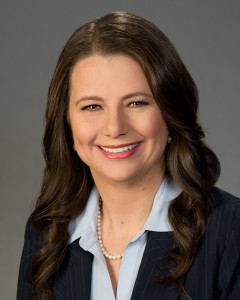Judge Rejects Closed Meetings for Illegal Ordinances in Atlanta
 (APN) ATLANTA — On yesterday, August 31, 2021, Fulton County Superior Court Judge Kelly Lee Ellerbe rejected a motion by Atlanta City Councilmembers Matt Westmoreland (Post 2-at-large) and Jennifer Ide (District 6) in which they argued that Councilmembers could permissibly close public meetings such as Council Committee Meetings to discuss likely unlawful ordinances in private.
(APN) ATLANTA — On yesterday, August 31, 2021, Fulton County Superior Court Judge Kelly Lee Ellerbe rejected a motion by Atlanta City Councilmembers Matt Westmoreland (Post 2-at-large) and Jennifer Ide (District 6) in which they argued that Councilmembers could permissibly close public meetings such as Council Committee Meetings to discuss likely unlawful ordinances in private.
It has been a one and a half year legal saga regarding the Feb. 11 and 12, 2020 Executive Sessions, or closed-door meetings, held by Atlanta City Council’s Community Development/Human Services Committee and Finance/Executive Committee.
Westmoreland and Ide claimed, orally and in sworn affidavits, that they closed the meetings to discuss what they claimed to be a threat of litigation.
In reality, they led discussions regarding then-pending City of Atlanta Ordinance 20-O-1185, following the publication of an article by Atlanta Progressive News informing them that they were getting ready to pass an illegal ordinance (but not threatening litigation).
The ordinance itself, later approved in a vote of thirteen to two by the Full Council, and adopted into the City’s Code of Ordinances, purports to add an additional protected class–source of income–in the City’s laws prohibiting rental housing discrimination.
However, state law provides only seven protected classes, and preempts cities from adding to or reducing the number of protected classes, meaning the Atlanta law adding an additional protected class is illegal and unenforceable.
 On Feb. 14, 2020, APN’s News Editor amended a lawsuit, Cardinale v. City of Atlanta, 2020-CV-232834, against the City of Atlanta, to include open meetings claims regarding the two closed-door, Executive Sessions.
On Feb. 14, 2020, APN’s News Editor amended a lawsuit, Cardinale v. City of Atlanta, 2020-CV-232834, against the City of Atlanta, to include open meetings claims regarding the two closed-door, Executive Sessions.
Over the next several months, Senior City Attorney Amber Ali Robinson withheld records related to the closure of the meeting, in response to several requests seeking documentation of the so-called threat of litigation justifying the closure.
On Oct. 09, 2020, privately retained counsel for the City, Michael Brandon Jones of the Bondurant Elmore Mixson LLP law firm, produced the records in civil discovery on behalf of the City of Atlanta.
Those records revealed that there apparently never was a threat of litigation.
 On Oct. 13, 2020, APN’s News Editor filed a motion to add Westmoreland and Ide as defendants to the case in their personal capacities, to face civil penalty claims of up to one thousand dollars each, under the Georgia Open Meetings Act.
On Oct. 13, 2020, APN’s News Editor filed a motion to add Westmoreland and Ide as defendants to the case in their personal capacities, to face civil penalty claims of up to one thousand dollars each, under the Georgia Open Meetings Act.
Only nine months prior, on March 13, 2020, the Supreme Court of Georgia had just ruled that civil penalties were available to any person under the Georgia Open Meetings Act, in Williams v. DeKalb, a case brought by pro se activist Ed Williams against the DeKalb County Board of Commissioners.
 In Feb. 17, 2021, Judge Ellerbe granted the motion to add Westmoreland and Ide as defendants.
In Feb. 17, 2021, Judge Ellerbe granted the motion to add Westmoreland and Ide as defendants.
If awarded, the civil penalties sought against Ide and Westmoreland could therefore be the first issued in Georgia, under the civil penalty provisions that were added to the Georgia Open Meetings Act in 2012.
On April 15, 2021, Westmoreland and Ide were added as defendants. On May 13, 2021, they were served.
On July 19, 2021, Ide and Westmoreland filed a Motion to Dismiss.
The Motion to Dismiss filed by Ide and Westmoreland argued that they were legally allowed to close the Committee Meetings to the public, even though there was no threat of litigation as they stated, merely because they were discussing a potentially illegal ordinance.
If this argument had been accepted by the court, it would mean that agencies could close their meetings any time they wanted to conspire to do something illegal.
That is the argument just financed by the taxpayers of the City of Atlanta, against the public interest.
As of May 2021, the City of Atlanta had paid over 259,000 dollars on outside counsel defending alleged violations of the Georgia Open Meetings Act, as well as Georgia Open Records Act and the First Amendment of the Federal Constitution, in court with APN’s News Editor.
This apparently includes spending on the defense of Westmoreland and Ide.
Last week, APN made a records request for public documents showing the updated spending amount.
 For under 259,000 dollars, the City of Atlanta could have purchased a 3-D printer that could have become a capital asset for the City to use to build an endless number of affordable modular housing units, with low construction costs, potentially in partnership with local nonprofit developers.
For under 259,000 dollars, the City of Atlanta could have purchased a 3-D printer that could have become a capital asset for the City to use to build an endless number of affordable modular housing units, with low construction costs, potentially in partnership with local nonprofit developers.
https://www.aniwaa.com/product/3d-printers/icon-vulcan-ii/
Instead, the taxpayers are paying to seek the right for their Councilmembers to close public meetings to them, the taxpayers, so Councilmembers can then conspire to pass illegal ordinances in their name.
“The… exception also allows governmental bodies to hold closed, executive session meetings to ‘discuss the possible legal ramifications of… ordinances with counsel’”, Westmoreland and Ide wrote in their Motion.
“Plaintiff alleges that ‘[t]he real intent of Defs. Westmoreland and Ide in going into Executive Session on Feb. 11 and 12, 2020, respectively, w[as] to have the cover of privacy in their discussion of an ordinance they knew to be illegal under state law’”, Westmoreland and Ide wrote in their Motion.
“But even if that were exclusively the case, the OMA permitted the Councilmembers to hold the closed executive session meetings to ‘discuss the possible legal ramifications of [the] ordinance[ ] with counsel’” Westmoreland and Ide wrote in their Motion.
The trial court rejected the motion to dismiss, finding that the legal standard for when agencies are allowed to close public meetings for threats of litigation in Georgia, is that the threats must be “realistic and tangible”, not “remote and speculative”.
“[T]he Court finds Plaintiff could introduce evidence that only a remote and speculative threat of litigation existed and not a realistic and tangible threat of litigation existed” when Ide and Westmoreland closed the Feb. 11 and 12, 2020 Cmte Meetings to go into Executive Session, the trial court ruled.
The civil penalty claims against Westmoreland and Ide will now proceed to discovery.
Councilwoman Ide announced her intention not to run again and therefore her last Council Meeting will be in December 2021.
However, because the civil penalty is on account of her past actions and is remedial in nature, Ide will continue to face the civil penalty action even when she is no longer on the Atlanta City Council.
(END / Copyright Atlanta Progressive News / 2021)